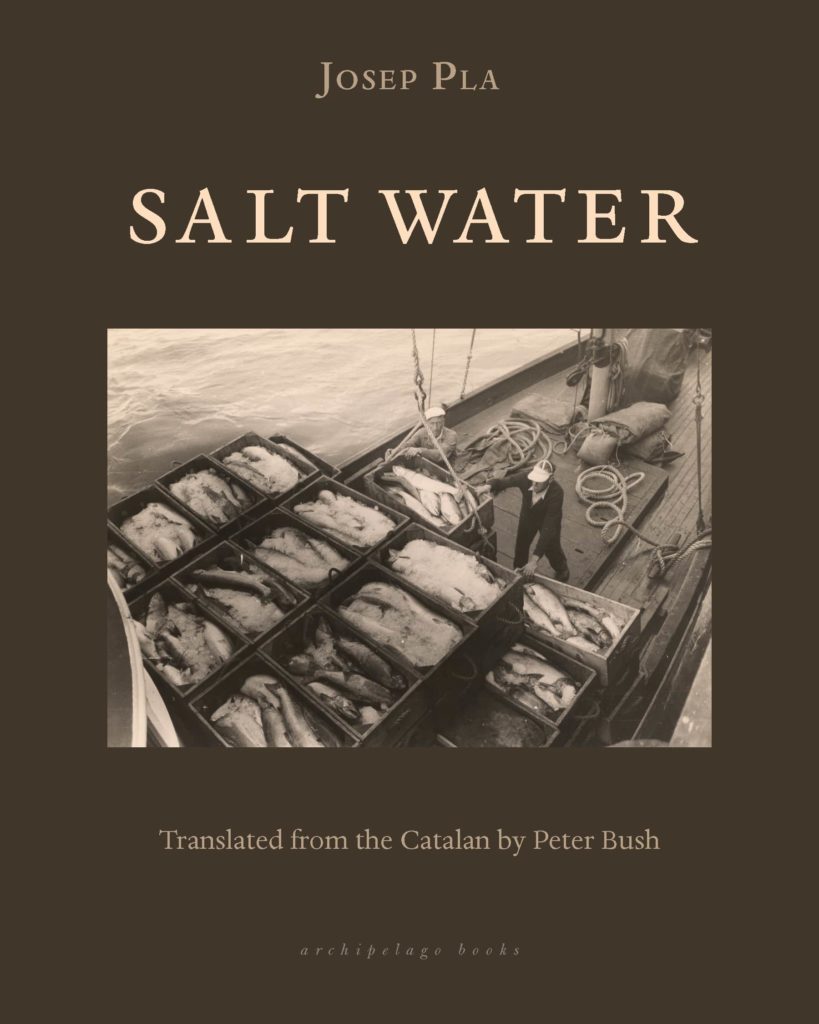Though Josep Pla earned a reputation as “the most important (and censored) prose writer in twentieth century Catalan literature” for his anti-fascist journalism, the late author admitted regret that his work kept him from fiction writing. In a 1966 preface to the recently re-published Salt Water (464 pages; Archipelago Books), Pla views the collection of connected and ostensibly nonfiction pieces written in his youth as “evidence of [his] potential, of what [he] might have achieved.” Considering that this was a lie meant to subvert Franco’s fascist censors, and Pla actually wrote these short stories while in his fifties, Salt Water benefits from Pla’s prolific career collecting pithy observations from sources, which helped the author generate idiosyncratic characters and iconoclastic literary insights. Aided by Peter Bush’s remarkable new English translation, Salt Water serves as evidence for what Pla might still achieve in the canon of Western literature.
Sensitive to the smallest differences between the book’s many geographic locations, Pla writes Mediterranean travel stories that could only be told in the context of La Selva’s “bovine-shaped mountains, long, gentle humps, covered in scree,” or Cadaqués’ “pulse of hard, persnickety, rather mysterious life, full of self-denying misery.” Pla is fundamentally affected by place, and suspects everyone else is, too, like the people of Palafrugell, who all play the tresillo; the “delightfully lackadaisical” people of the “fantastically lethargic” Fornells; or the “tad unhinged…hard to understand, downright peculiar” people of Catalonia.
From El Jonquet springs a smuggler named Bread and Grapes, who creates a criminal conspiracy centered on a beached vessel. Even in Salt Water’s more essay-like entries, the plot progresses because of peculiar characters so distinct that, a page after meeting them, Pla does not need to indicate who is speaking. There is Hermós, a stubborn, fifty-year old sailor intent on travelling from Cadaqués to France in a small dinghy. There is Senyor Dalí, who calls himself “Dalí, the painter’s father” despite his own personal accomplishments and who obsessively seeks monetary compensation for the families of sailors drowned in an unrecovered shipwreck.
Equally interesting are the narrators of these stories themselves. Always writer figures resembling Pla, the speakers obey their “literary curiosity” and follow these strange, aforementioned men. Although the speakers allow themselves to be led, they are not passive narrators; walking encyclopedias, they talk at length about a particular subject, ranking, for example, various fish in terms of aesthetics and culinary potential, inserting intermittent jokes like “bouillabaisse invites you to eat solid things with a spoon, and that explains eighty percent of its glory,” and concluding, “There is much more to say about fish in Fornells”—indicating that, somehow, they know even more than they are letting on. Pla indicates he may be one of the last such journalistic storytellers, given knowledge’s increasing mechanization and life’s general unknowability.
Despite this latter fear, Pla loves at least one great mystery: the sea, since “a mystery you love practically ceases to be one…” Plus, should the speaker get lost in abstract thought, the sea offers a concrete escape from navel-gazing, wherein he can stop his dead-end pontificating to say, “However, [sardine] does make a tasty rice dish. End of argument.” Those who are not sufficiently lucid tend to become disenchanted with the sea, Pla warns. His unique prose, suffused with love, exists in a space between stoic observation and daydream.
Of course, the prose shines in part because of the translation. The language is precise and beautiful, and a reader gets the sense that little was lost in translation when language-based jokes remain intact, such as “the owner’s surname is Ballestar, though he had no crossbows.” Pla’s commitment to the illegal (under Franco) Catalan language made him controversial in his time, and, even in English, Bush does not betray his devotion.


One thought on “‘Salt Water’ by Josep Pla: A Dive Into the Mediterranean”